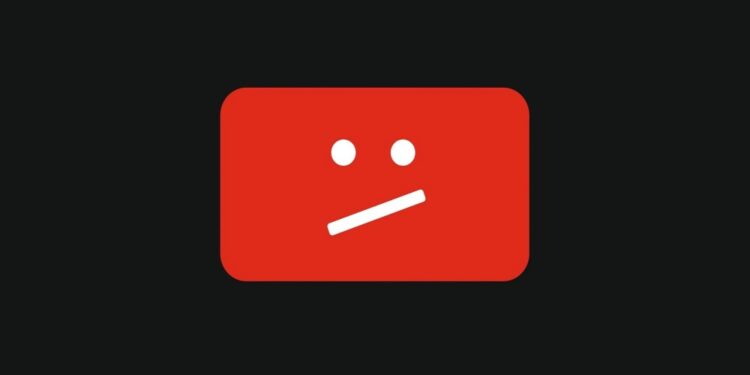If you get a copyright strike, that means your video has been taken down from YouTube because a copyright owner sent a complete and valid legal request asking YouTube to do so. When a copyright owner formally notifies YouTube that you don’t have their permission to post their content on the site, YouTube takes down your upload to comply with copyright law.
When you get a copyright strike, it acts as a warning. The first time you get a copyright strike, you’ll need to go through YouTube Copyright School, so you can understand copyright and how it’s enforced at YouTube. You will be required to answer a few questions to prove that you understand how YouTube enforces the copyright.
Here are the YouTube Copyright School questions and answers.
- All uses of copyrighted content without permission of the owner are considered copyright infringement.
- Answer: False (There may be protections (such as fair use or fair dealing) in certain jurisdictions which allow for the use of portions of a copyrighted work without the permission of the original owner.)
- Answer: False (There may be protections (such as fair use or fair dealing) in certain jurisdictions which allow for the use of portions of a copyrighted work without the permission of the original owner.)
- Anyone can issue a copyright claim on behalf of someone else.
- Answer: False (Only the copyright owner or an authorized representative can issue a copyright claim for their content on YouTube.)
- Answer: False (Only the copyright owner or an authorized representative can issue a copyright claim for their content on YouTube.)
- As long as I have purchased the content in question, it is not possible for me to infringe copyright by uploading it to YouTube.
- Answer: False (Purchasing a copy of any media (such as a song, movie, or videogame) does not necessarily give you the right to upload it to YouTube.)
- Answer: False (Purchasing a copy of any media (such as a song, movie, or videogame) does not necessarily give you the right to upload it to YouTube.)
- As long as you have modified the original content in some way, such as in a remix, it is always a fair use of copyrighted material and you cannot be subject to claims of copyright infringement.
- Answer: False (Determinations of fair use must take into a number of considerations, including the purpose and character of the work, the nature, amount and substantiality of the copied work, and the effect on the original work’s value.)
- Answer: False (Determinations of fair use must take into a number of considerations, including the purpose and character of the work, the nature, amount and substantiality of the copied work, and the effect on the original work’s value.)
- Content that was once allowed by a content owner may be subsequently removed from YouTube.
- Answer: True (Owners can change their mind about how their content is displayed on YouTube. For this reason, creating completely original content is the best protection against copyright infringement claims.)
- Answer: True (Owners can change their mind about how their content is displayed on YouTube. For this reason, creating completely original content is the best protection against copyright infringement claims.)
- Copyright infringement can result in:
- Answer: All of the above (There can be serious consequences for infringing copyright.)
- Answer: All of the above (There can be serious consequences for infringing copyright.)
- Copyright infringement is a serious offense and violation of the law may have significant consequences.
- Answer: True (If you are found liable for copyright infringement, you can face serious legal consequences, including significant financial penalties.)
- Answer: True (If you are found liable for copyright infringement, you can face serious legal consequences, including significant financial penalties.)
- Copyright infringement occurs when a copyrighted work is ________ without the permission of the copyright owner:
- Answer: All of the above (Copyright protects each of these individual rights; reproduction, distribution, performance and public display.)
- Answer: All of the above (Copyright protects each of these individual rights; reproduction, distribution, performance and public display.)
- Copyright protection is only given to major film, television or recording corporations who pay for the privilege.
- Answer: False (Anyone can produce an original creative work, which will be automatically protected by copyright once it is in some fixed (written down, recorded) form.)
- Creating 100% original new content for YouTube will help to protect you against claims of copyright infringement.
- Answer: True (If you aren’t copying anyone else’s work, you have nothing to worry about!)
- Answer: True (If you aren’t copying anyone else’s work, you have nothing to worry about!)
- Deleting a video that was removed for copyright will get rid of the associated copyright strike.
- Answer: False (Deleting an infringing video will make no difference on the strikes and other penalties on your account.)
- Answer: False (Deleting an infringing video will make no difference on the strikes and other penalties on your account.)
- “Fair use” is a legal defense that applies in all countries.
- Answer: False (Only some jurisdictions have copyright provisions protecting “fair use.” If you are uncertain as to whether a specific use qualifies as a fair use, you should contact a qualified copyright attorney.)
- Answer: False (Only some jurisdictions have copyright provisions protecting “fair use.” If you are uncertain as to whether a specific use qualifies as a fair use, you should contact a qualified copyright attorney.)
- Giving credit to the creator in your video’s description is enough to prevent copyright infringement from occurring.
- Answer: False (You may need authorization from the copyright holder in order to post third-party content. Mentioning or giving credit does not absolve you of this responsibility.)
- Answer: False (You may need authorization from the copyright holder in order to post third-party content. Mentioning or giving credit does not absolve you of this responsibility.)
- If a video gets removed because of a copyright infringement notification, filing a counter-notification is the only possible way to restore the video.
- Answer: False (You may reach out to content owners and come to an agreement that they will retract their claim of copyright infringement. Should a claimant contact YouTube directly with a retraction, YouTube will be able to reinstate video content almost immediately.)
- Answer: False (You may reach out to content owners and come to an agreement that they will retract their claim of copyright infringement. Should a claimant contact YouTube directly with a retraction, YouTube will be able to reinstate video content almost immediately.)
- If content is available on the Internet, it is in the public domain and therefore okay to upload to YouTube.
- Answer: False (Just because something is available on the Internet does not mean that it is in the public domain.)
- Answer: False (Just because something is available on the Internet does not mean that it is in the public domain.)
- If I intentionally file a false notice of alleged copyright infringement against a YouTube video (just for fun, or to cause trouble), I could be found liable for any damages caused.
- Answer: True (Abuse of the copyright process is taken very seriously. The law allows users harmed by fraudulent copyright notices to sue the claimant for damages.)
- Answer: True (Abuse of the copyright process is taken very seriously. The law allows users harmed by fraudulent copyright notices to sue the claimant for damages.)
- If someone alleges that you have infringed their copyright and you are certain that this is not the case, you may:
- Answer: File a counter-notification (If you believe your content was misidentified as infringing (as the result of a mistake or misidentification of the material claimed to be infringing), you may file a counter-notification.)
- Answer: File a counter-notification (If you believe your content was misidentified as infringing (as the result of a mistake or misidentification of the material claimed to be infringing), you may file a counter-notification.)
- If someone alleges that you have infringed their copyright, you will receive a notification:
- Answer: Both A and B (If one of your videos is removed as the result of a copyright infringement notification, you will receive notice in your account the next time you log in to YouTube. You will also receive an email at the address associated to your account.)
- Answer: Both A and B (If one of your videos is removed as the result of a copyright infringement notification, you will receive notice in your account the next time you log in to YouTube. You will also receive an email at the address associated to your account.)
- If the original creator of the copyrighted work has died, the work is no longer protected by copyright.
- Answer: False (Copyright protection can continue even after the creator’s death.)
- Answer: False (Copyright protection can continue even after the creator’s death.)
- If you are found to be a repeat infringer, you could lose your YouTube account.
- Answer: True (Users suspended for copyright infringement are forbidden from opening new accounts)
- Answer: True (Users suspended for copyright infringement are forbidden from opening new accounts)
- If you claim fair use in the video description, your video can’t be considered copyright infringement.
- Answer: False (Fair use cases can only be determined in court. You should seek legal advice from a qualified copyright attorney for help determining if your use of copyrighted material could be considered fair.)
- Answer: False (Fair use cases can only be determined in court. You should seek legal advice from a qualified copyright attorney for help determining if your use of copyrighted material could be considered fair.)
- If you misuse YouTube’s counter-notification process:
- Answer: Both A and B (Misuse of the counter-notification process can have very serious consequences.)
- Answer: Both A and B (Misuse of the counter-notification process can have very serious consequences.)
- In order to determine whether specific copyrighted content is authorized to be used on YouTube, you should upload it to your account and wait for the Content ID system to block any unauthorized content.
- Answer: False (It is your responsibility to know whether you have the right to upload content to YouTube before uploading it.)
- Answer: False (It is your responsibility to know whether you have the right to upload content to YouTube before uploading it.)
- It is impossible for a remix or mashup to infringe copyright.
- Answer: False (Remixes and mashups can be considered derivative works under the law, and you may need permission from the original content creator to remix or mashup their content. Not all remixes are protected by fair use.)
- Answer: False (Remixes and mashups can be considered derivative works under the law, and you may need permission from the original content creator to remix or mashup their content. Not all remixes are protected by fair use.)
- It is okay to upload an entire cartoon episode without the authorization of the copyright owner as long as I’m just sharing it with my friends, family and fans.
- Answer: False (You must have the appropriate rights to upload content to YouTube, regardless of who you share it with.)
- Answer: False (You must have the appropriate rights to upload content to YouTube, regardless of who you share it with.)
- It’s fine to use someone else’s content as long as it already appears on YouTube.
- Answer: False (Sometimes a copyright owner will authorize use of specific content on YouTube. If you are unsure if you have that permission, you should not post the content.)
- Answer: False (Sometimes a copyright owner will authorize use of specific content on YouTube. If you are unsure if you have that permission, you should not post the content.)
- It’s possible for music to have more than one copyright owner.
- Answer: True (For example, the copyright to a particular piece of music may be owned by the songwriter, the performer, the producer, a record label, a publisher, or a combination thereof.)
- Answer: True (For example, the copyright to a particular piece of music may be owned by the songwriter, the performer, the producer, a record label, a publisher, or a combination thereof.)
- The following item is protected by copyright:
- Answer: Your original YouTube video (Copyright protects works that are original, creative, expressive and fixed.)
- Answer: Your original YouTube video (Copyright protects works that are original, creative, expressive and fixed.)
- The following item(s) may be protected by copyright:
- Answer: All of the above (Copyrighted works include music, photographs, paintings, books, films and video.)
- Answer: All of the above (Copyrighted works include music, photographs, paintings, books, films and video.)
- The following items are NOT protected by copyright:
- Answer: People (People are not protected by copyright.)
- Answer: People (People are not protected by copyright.)
- The following things are copyrightable: names, places, faces and spaces.
- Answer: False (In order for something to be protected by copyright, it must be creative, expressive, unique and fixed in some form.)
- You should ask YouTube for permission to use other users’ content from the site.
- Answer: True (YouTube cannot grant the rights to any screenshots or footage of third party content on the site.)
- Answer: True (YouTube cannot grant the rights to any screenshots or footage of third party content on the site.)


































































































































































































i am in the
It is a very useful information. Ive learned a lot not to get strike again. Thank you
Obrigada!!!